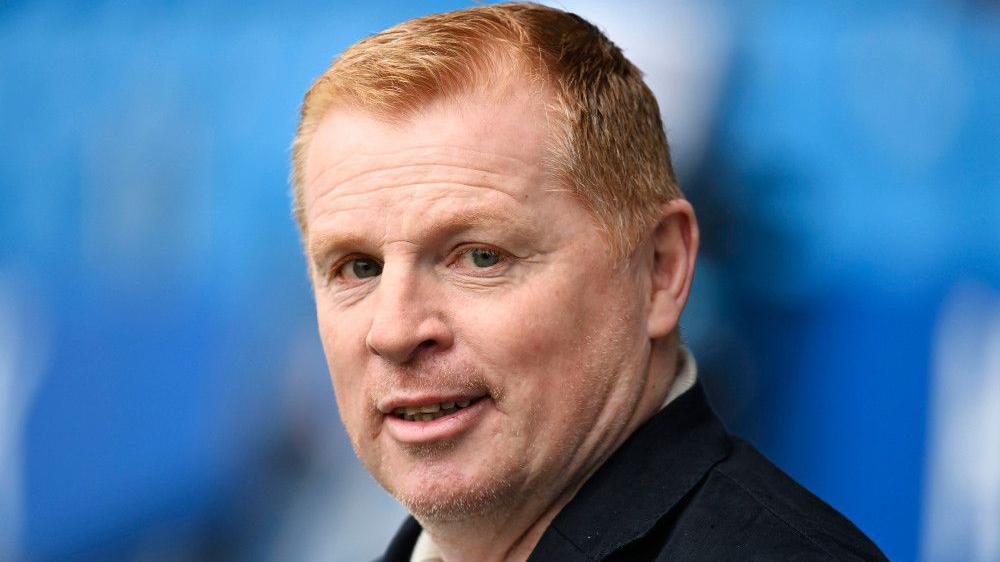
Rapid Bucharest has once again fired its head coach due to……
Neil Lennon’s tenure as manager of Rapid Bucharest has come to an abrupt end after just six matches in charge. The former Celtic and Hibernian boss, who also managed Bolton Wanderers and Omonia Nicosia, was appointed to the Romanian club in May. However, a disappointing run of results — five draws and a single defeat — has left Rapid sitting 12th in the 16-team SuperLiga, ultimately prompting the club’s decision to part ways with Lennon.

The 53-year-old Northern Irishman, a prominent figure in football both as a player and a manager, had taken over at Rapid Bucharest with the hope of revitalizing the team and improving their league standing. Despite his reputation for galvanizing teams and achieving success in challenging circumstances, Lennon struggled to find the winning formula during his brief spell in Romania. The team’s inability to secure a victory under his leadership placed them perilously close to the relegation zone, heightening concerns among the club’s hierarchy and supporters alike.

Lennon’s backroom staff, including Iain Brunskill, Andrew Liddell, and Kyirakos Televantos, have also been relieved of their duties as part of the managerial overhaul. The club issued a statement addressing the departure, expressing gratitude for Lennon’s efforts during a particularly challenging period:
“We thank Neil Lennon for all his dedication and energy on the Rapidu bench, especially since he has been through difficult times lately, and we wish him much success in the future.”
This decision comes against the backdrop of personal difficulties for Lennon, who had recently returned home to Northern Ireland following the death of his mother earlier this month. The emotional strain of this loss, coupled with the mounting pressure of his managerial responsibilities, likely compounded the challenges he faced at Rapid Bucharest.
Lennon’s managerial career has been marked by notable highs and challenging lows. As manager of Celtic, he enjoyed significant success, leading the club to multiple league titles, domestic cups, and a memorable run in European competitions. His ability to motivate players and deliver results under pressure earned him acclaim, particularly during his first stint with the Scottish giants. Later, his tenure at Hibernian saw him guide the team to a strong finish in the Scottish Premiership and a respectable showing in domestic cup competitions.
However, his time at Bolton Wanderers and Omonia Nicosia presented more mixed results. At Bolton, Lennon faced significant financial difficulties and a lack of resources, which hampered his ability to achieve consistent success. Meanwhile, at Omonia Nicosia, he experienced moments of promise but ultimately struggled to maintain long-term stability.

Rapid Bucharest had hoped that Lennon’s wealth of experience and proven track record of handling high-pressure environments would translate into a successful stint in Romania. Unfortunately, his tenure was marred by inconsistent performances on the pitch, with the team unable to turn draws into wins or establish a cohesive style of play.
The decision to dismiss Lennon underscores the unforgiving nature of football management, where results are paramount, and patience is often in short supply. Rapid Bucharest’s leadership now faces the task of identifying a successor who can reverse the team’s fortunes and steer them away from the lower reaches of the SuperLiga standings.
For Lennon, this latest chapter adds to an already eventful career in football. As a player, he was known for his tenacity and leadership, captaining Celtic and earning over 40 caps for Northern Ireland. Transitioning into management, he demonstrated an ability to inspire and lead teams, albeit with varying degrees of success across different clubs and leagues.
In the wake of his departure from Rapid Bucharest, Lennon’s immediate focus may well be on personal matters, including mourning the loss of his mother. Beyond that, it remains to be seen whether he will seek another managerial role or take time to reflect on his next steps in football.
Rapid Bucharest, for their part, will look to regroup and move forward under new leadership. With the SuperLiga season still in its early stages, there remains an opportunity for the team to climb the table and achieve their objectives. The club’s decision to act swiftly in replacing Lennon reflects their determination to address their struggles and strive for improvement.
As the football world reacts to this development, Lennon’s legacy as a manager and player remains intact. His resilience and passion for the game have been hallmarks of his career, and his ability to navigate challenges has earned him respect within the sport. While his time at Rapid Bucharest may not have gone as planned, it represents just one chapter in a long and storied journey in football.
The coming weeks and months will reveal what’s next for both Neil Lennon and Rapid Bucharest. For now, the focus shifts to finding solutions and charting a path forward, whether it’s for a club aiming to rebound in the SuperLiga or a seasoned manager reflecting on his career and future ambitions.
Leave a Reply